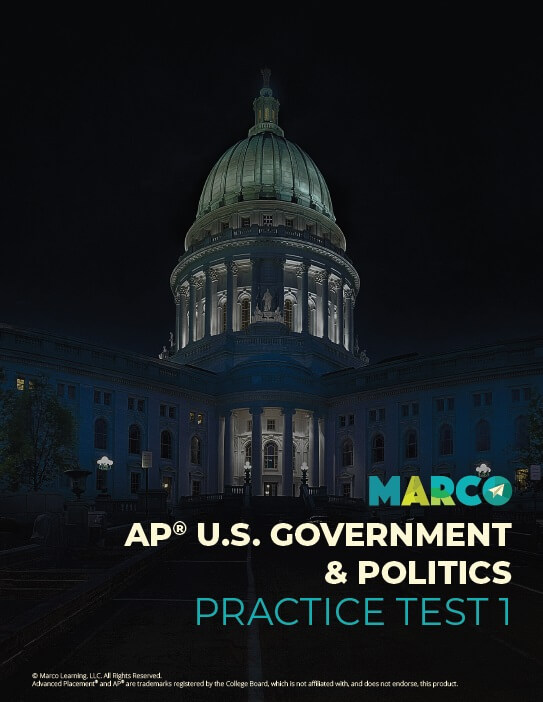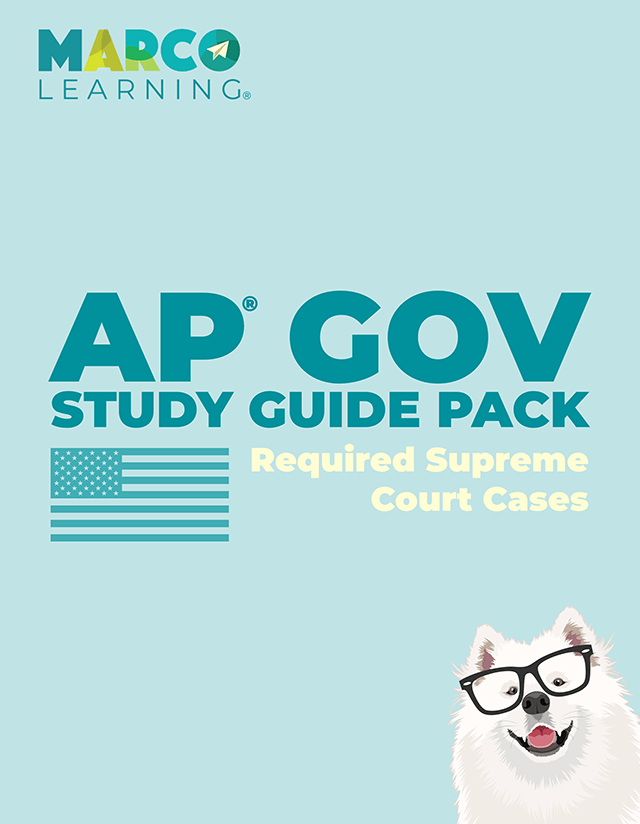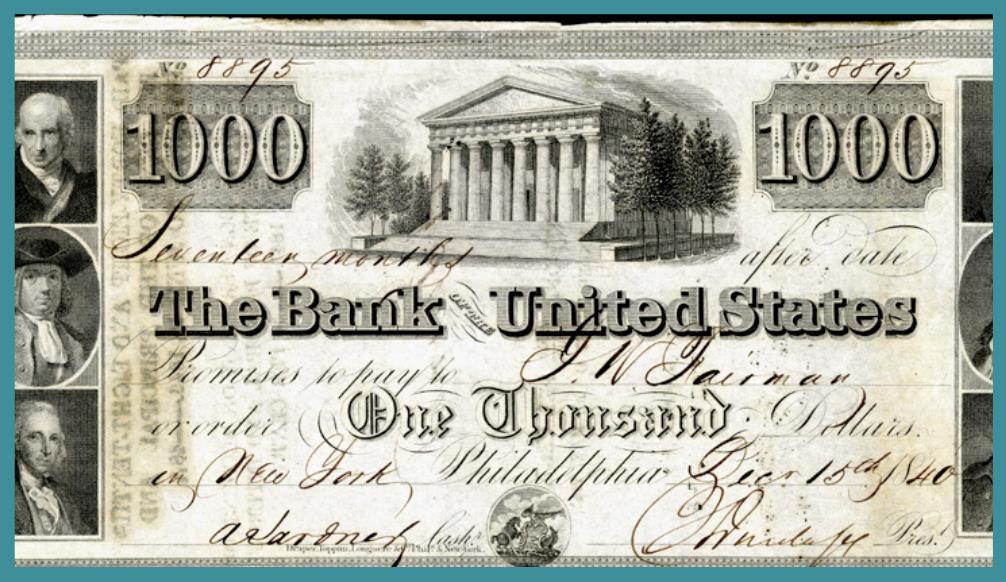


To score well on your AP® U.S. Government and Politics Exam, it is important to become familiar with all of the required Supreme Court cases. In the free-response section of your AP U.S. Government Exam, you will have to answer four essay questions. The third of these questions is a SCOTUS comparison essay, in which you will be required to compare a non-required Supreme Court case with a required Supreme Court case, so get to know each required Supreme Court case as well as possible!
The required Supreme Court cases for the AP U.S. Government and Politics Exam in 2021 are:
Marbury v. Madison (1803)
McCulloch v. Maryland (1819)
Schenck v. the United States (1919)
Brown v. Board of Education (1954)
Engel v. Vitale (1962)
Baker v. Carr (1962)
Gideon v. Wainwright (1963)
Tinker v. Des Moines Independent Community School District (1969)
New York Times Co. v. United States (1971)
Wisconsin v. Yoder (1972)
Roe v. Wade (1973)
Shaw v. Reno (1993)
United States v. Lopez (1995)
McDonald v. Chicago (2010)
Citizens United v. Federal Election Commission (2010)
McCulloch v. Maryland
McCulloch v. Maryland is one of the required Supreme Court cases for AP U.S. Government and Politics. This court case resulted in the decision that established the supremacy of the Constitution, the expansion of Congress’ powers beyond those enumerated, and the inferior status of state laws in relation to federal laws.
FACTS OF THE CASE
Controversy existed surrounding the legitimacy of a national bank since Alexander Hamilton proposed its creation in 1791 and it was chartered that same year. Hamilton, who favored a strong federal government, argued that Congress could do whatever was necessary to stimulate economic growth and recover from debts incurred during the Revolutionary War. Thomas Jefferson, who opposed the bank, argued that the creation of a national bank was not granted under the enumerated powers of the Constitution and that the Congress’ action was illegitimate.
In the aftermath of the War of 1812, there was a revival of support for a strong central bank, and the Second Bank of the United States was chartered in 1816. In 1818, the state of Maryland imposed taxes on the national bank and a Baltimore branch cashier named James McCulloch refused to pay those taxes. The state of Maryland sued McCulloch, and McCulloch, arguing that the state tax was illegitimate, took his case to the Supreme Court after a state appeals court ruled against him.
THE DECISION
In a unanimous opinion, the Court ruled that the Second Bank of the United States’ charter was constitutionally legitimate, while the state of Maryland’s tax on that bank was illegitimate. Chief Justice John Marshall argued that while the creation of a national bank was not an enumerated power granted to the Congress by the Constitution, it is an implied power (the Constitution explicitly grants the Congress the power to levy money and regulate currency). Furthermore, the Court ruled that Maryland’s tax was an unconstitutional attempt to violate federal supremacy and that states could not interfere with federal powers.
IMPACT
The decision in McCulloch v. Maryland has impacted innumerable subsequent cases dealing with American federalism and the scope of governmental authority. It established that the federal government has the authority to act beyond what is explicitly outlined in the Constitution, and it cemented the supremacy of federal over state law.

PRECEDENT & SUBSEQUENT CASES
There is no precedent for McCulloch v. Maryland, but nearly every subsequent case dealing with the scope of federal power rests upon the foundation laid in this case.
KEY TERMS
Federalism The system of distributing power between state and national governmental institutions.
Supremacy Clause The clause within the Constitution that makes the Constitution and federal laws stemming from it authoritative over all other laws.
Necessary and Proper Clause The clause within the Constitution that authorizes Congress to make laws necessary to fulfill its other duties established by the Constitution.
Implied Powers Powers of the government that are not explicitly granted by the Constitution (the enumerated powers) but implied by the Necessary and Proper Clause.
The best way to get better at something is by practicing.
That’s why it’s so important that you take practice tests to help you get better at the AP U.S. Government and Politics Exam. Only then can you expect to get a good score—and even improve your score.
 Help
Help